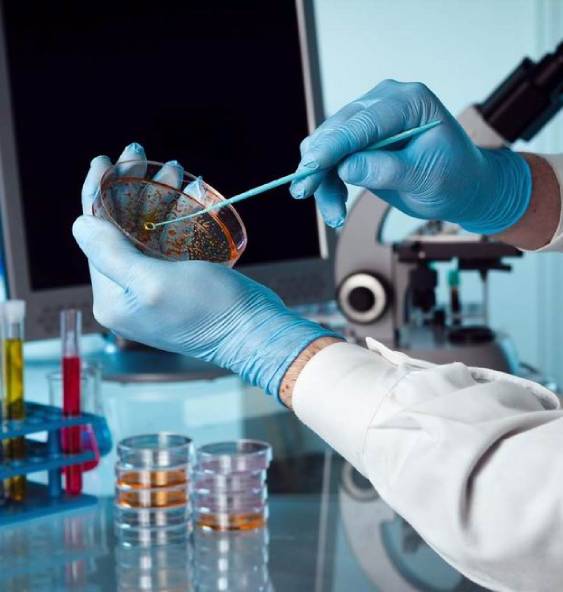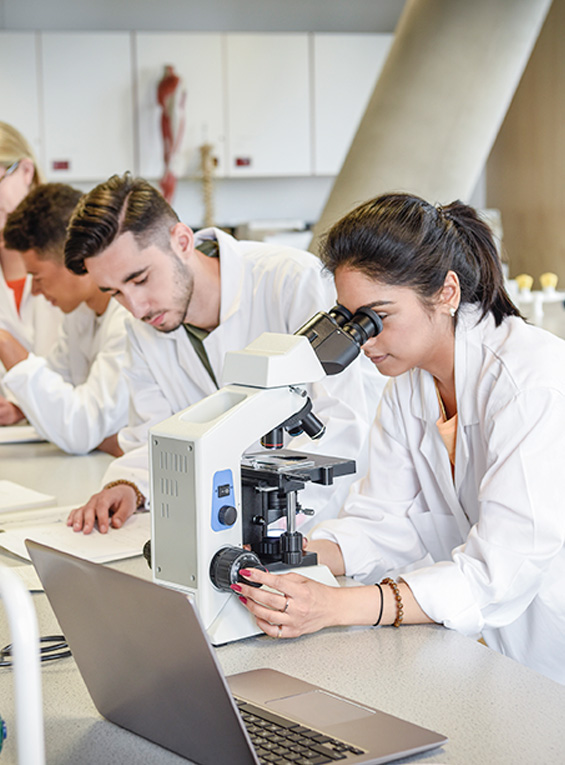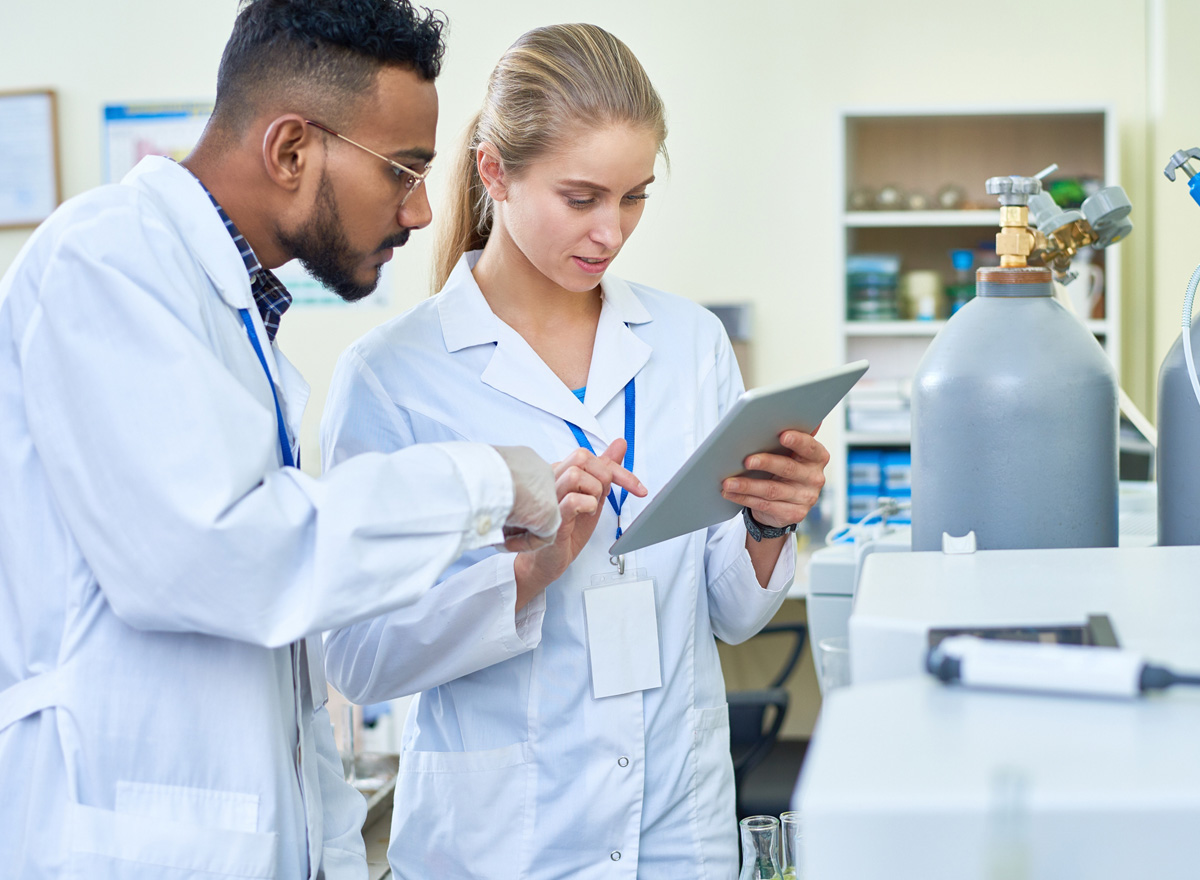Training Offered
Area Of Focus
About Internship
Internship / Hands on Training Modules

Workshop


Mini and Major Projects
Training Offered
Biotechnology project and internship in Chennai
AviGen BioTech Pvt Ltd is a company that provides lab space for students, researchers, and scientists to complete their dream life sciences internship. The best biotech training institute in Chennai, with excellent laboratory practice and well-equipped lab facilities. This lab is in the heart of the city, close to public transportation.
Project for life science
Students, researchers, and scientists can complete minor and major life sciences projects in a lab setting provided by AviGen BioTech Pvt Ltd. With great laboratory and well-equipped research operations, we offer a great and most innovative ideas.
Food technology internship and project
One of the most important functions of a food technology is to maintain food quality by inspecting its processing and production. Many projects and internships have successfully taken over the food product and its positive actions while avoiding any negative consequences.
Microbiology project, internship and training
Microbiology is the study and monitoring of microbes such as algae, bacteria, and fungi using a variety of analytical and scientific techniques. This course introduces laboratory professionals to the most common culture media used in microbiology labs. Laboratory specialists compare and contrast different culture media, explain how to streak a plate, identify different types of colonial morphology, and show how to solve common culture media difficulties. Then you'll learn how to read a Gram stain, colony characteristics, biochemical assays for identifying Gram negative microbes, and standard testing techniques.
Molecular biology and enzymology project and training
The principles of molecular biology laboratory practice and popular methodologies are covered in the Molecular Biology programme. The training comprises of interactive, concise content that may be completed at any time during the day. Basic Molecular Biology consists of four sections: Basic Science, Laboratory Practice, Nucleic Acid Extraction, and PCR.
Stem Cell Therapy and Regenerative Medicine project, internship and training
Stem cell technology is a high tech field that combines the expertise of cell biology, genetics, molecular biology and clinical applications and offers hope of effective treatment for a variety of diseases including cancer. Stem cells are defined as highly potent progenitor cells capable of self-renewal and multilineage differentiation. Stem cells survive well and show stable division in culture, making them ideal targets for in vitro manipulation. Our research and application of this workshop will focus on Dental Stem cells, Animal Bone Marrow Stem cells, Hematopoietic Stem cells (from Cord Blood), and Mesenchymal Stem cells (from Cord Tissue or Bone Marrow). Stem cell isolation, limited culture and differentiation abilities will be studied under controlled environment and in biosafety cabinet conditions. Advanced CO2 incubators and defined (stem cell) culture medium will be used to culture and plate them to check their abilities. This workshop will provide a comprehensive technical and advanced theoretical exposure on stem cell technology.
In vitro anticancer, apoptosis, ROS and MMP studies by fluorescence microscopy
Understanding how immune cells recognize and kill cancer cells, and what we can do to enhance their ability to fight cancer, is important for anyone working to develop new cancer treatments or apply them in the clinic.
Herbal and algal products training and project
The course provides substantial evidence for the health benefits of herbal and algal-derived products and considerable challenges in quantifying the benefits, as well as possible adverse effects. We highlight this rapidly advancing area of herbal and algal science with a particular focus on the key research required to assess better the health benefits of an alga or algal product.
Nanotechnology project, internship and training
The innovative Nanotechnology Training Program aims to give participants a broad view of Nanotechnology and it’s prospective, so that can give a comprehensive view of this technology to students. Covering the entire gamut from the historical to present and future perspectives of Nanotechnology, the program covers the synthesis of ten different nanoparticles and their various applications.
Environmental and agricultural biotechnologytraining and project
Agricultural biotechnology has a high potential for social good–literally improving the lives of billions of people. Environmental and agricultural biotechnology training programme provide various possible environmental technologies planning towards development of project proposals for various possible biotechnology options, identify gap areas and to develop translational research projects.
Biology and biodiesel project and training in Chennai
To create the interest to the students about the alternative fuels derived from organic matters. Since, biofuelsderived from organic mattershas played a vital role in the environmental issues to reduce the emissions.Also, to impart the knowledge to the students about the different methods ofpreparation of biodiesel.
Tissue engineering, wound healing and antidiabetic activity
The course will introduce principles and applications of tissue engineering. The course will provide an understanding of the applications of engineering and life science principles in the field of tissue engineering by using collagen. As an up and coming interdisciplinary domain of research, the course will be designed based on current literature.
Bioinformatics, sequencing, PCR and RT-PCR training
Topics covered include multiple sequence alignments, phylogenetic, gene expression data analysis, and protein interaction networks. This course is useful to any student considering graduate school in the biological sciences, as well as students considering molecular medicine. Both provide an overview of the many different bioinformatic tools that are out there.
Animal cell culture and in vitro, in vivo toxicology studies
Principles and applications of tissue culture, Characterization of cell lines,Tissue culture media, Cryopreservation and cell bankingCell culture techniques: Demonstrations and Hands‐on lab experiments ‐ Cell counting and viability determination, Subculture of cell lines,Development of growth curves, Replicate culture set up, Coverslipcultures.
Skill training program in biology and biotechnology field
This programme has been implemented with an objective to provide hands-on-training in tools and techniques in Biotechnology and allied areas to generate skilled manpower. This programme has been designed for providing skill training under four categories (i) Skill training for students (ii) Technician training (iii) Faculty training and (iv) Entrepreneurship training.
